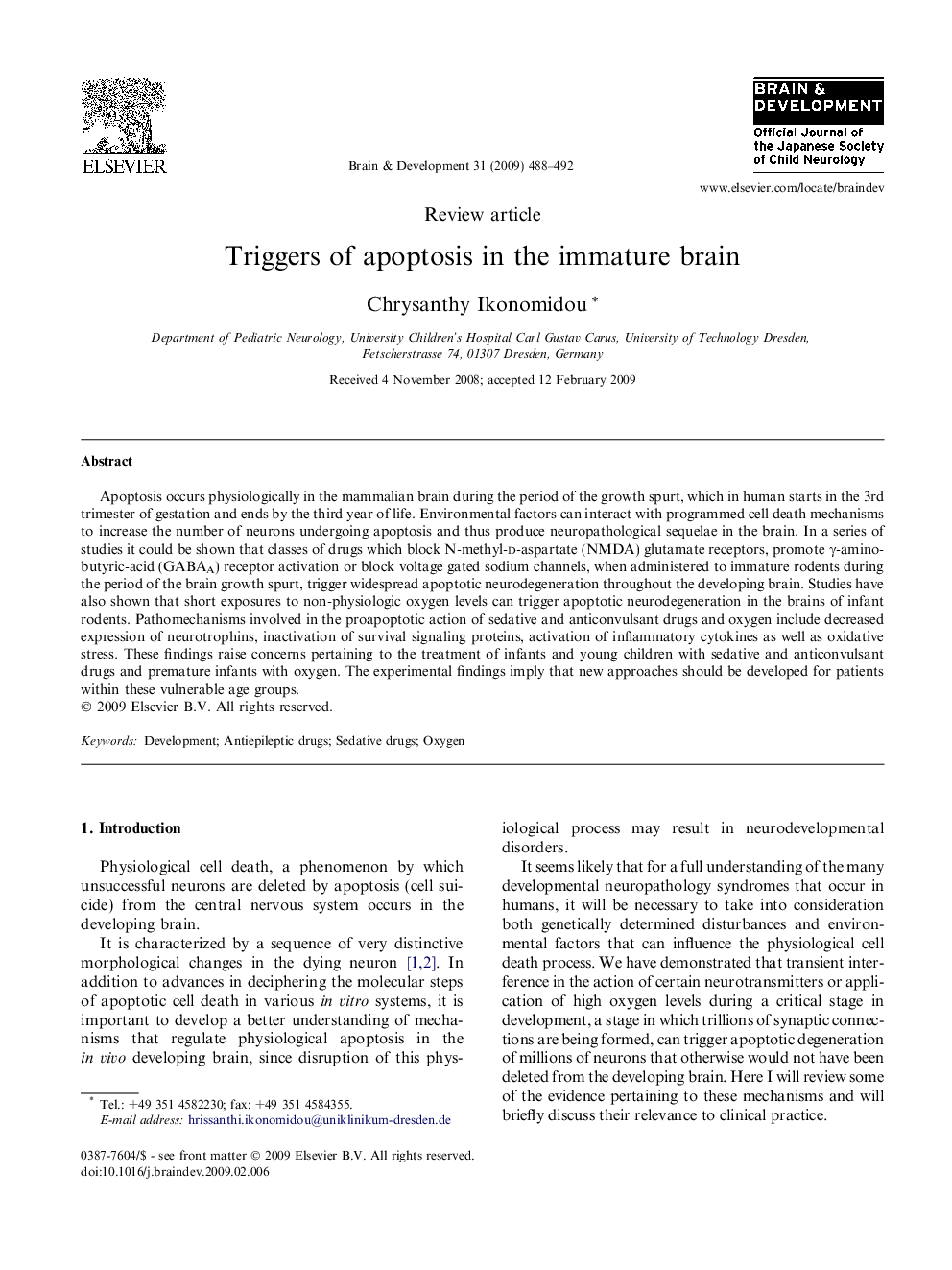| کد مقاله | کد نشریه | سال انتشار | مقاله انگلیسی | نسخه تمام متن |
|---|---|---|---|---|
| 3037857 | 1184434 | 2009 | 5 صفحه PDF | دانلود رایگان |

Apoptosis occurs physiologically in the mammalian brain during the period of the growth spurt, which in human starts in the 3rd trimester of gestation and ends by the third year of life. Environmental factors can interact with programmed cell death mechanisms to increase the number of neurons undergoing apoptosis and thus produce neuropathological sequelae in the brain. In a series of studies it could be shown that classes of drugs which block N-methyl-d-aspartate (NMDA) glutamate receptors, promote γ-aminobutyric-acid (GABAA) receptor activation or block voltage gated sodium channels, when administered to immature rodents during the period of the brain growth spurt, trigger widespread apoptotic neurodegeneration throughout the developing brain. Studies have also shown that short exposures to non-physiologic oxygen levels can trigger apoptotic neurodegeneration in the brains of infant rodents. Pathomechanisms involved in the proapoptotic action of sedative and anticonvulsant drugs and oxygen include decreased expression of neurotrophins, inactivation of survival signaling proteins, activation of inflammatory cytokines as well as oxidative stress. These findings raise concerns pertaining to the treatment of infants and young children with sedative and anticonvulsant drugs and premature infants with oxygen. The experimental findings imply that new approaches should be developed for patients within these vulnerable age groups.
Journal: Brain and Development - Volume 31, Issue 7, August 2009, Pages 488–492